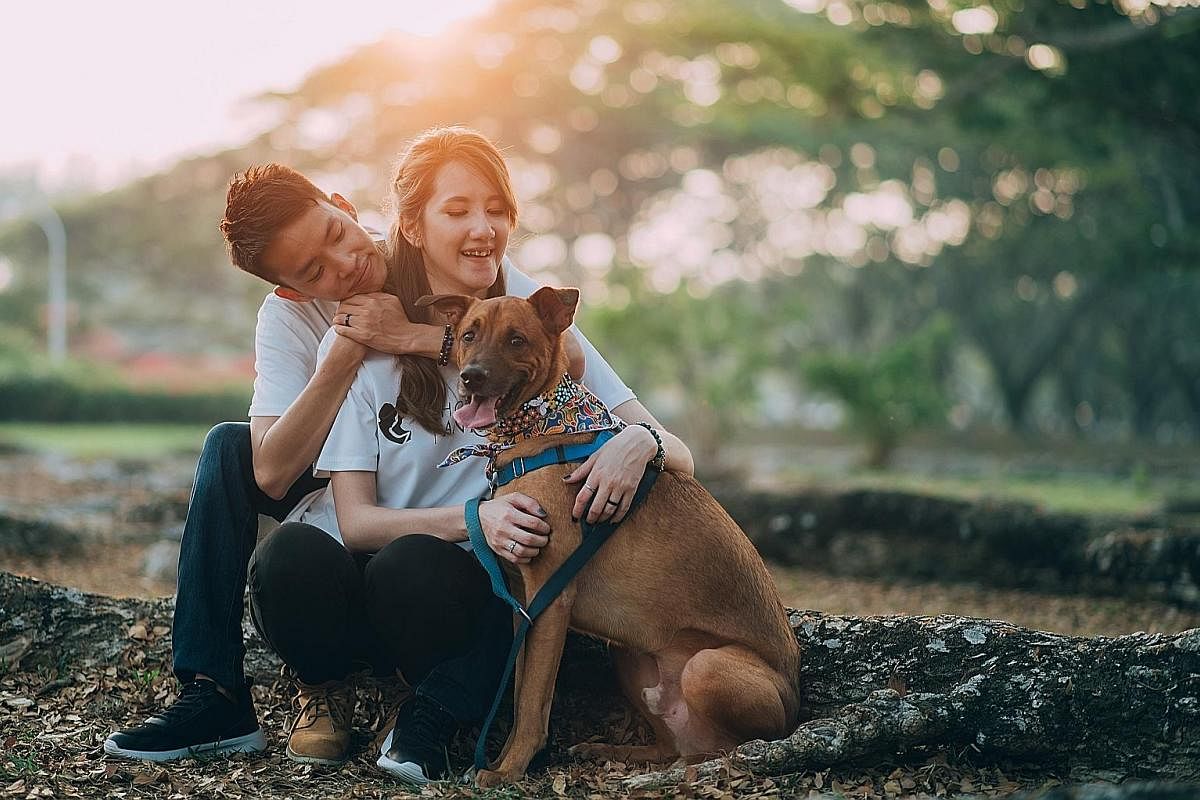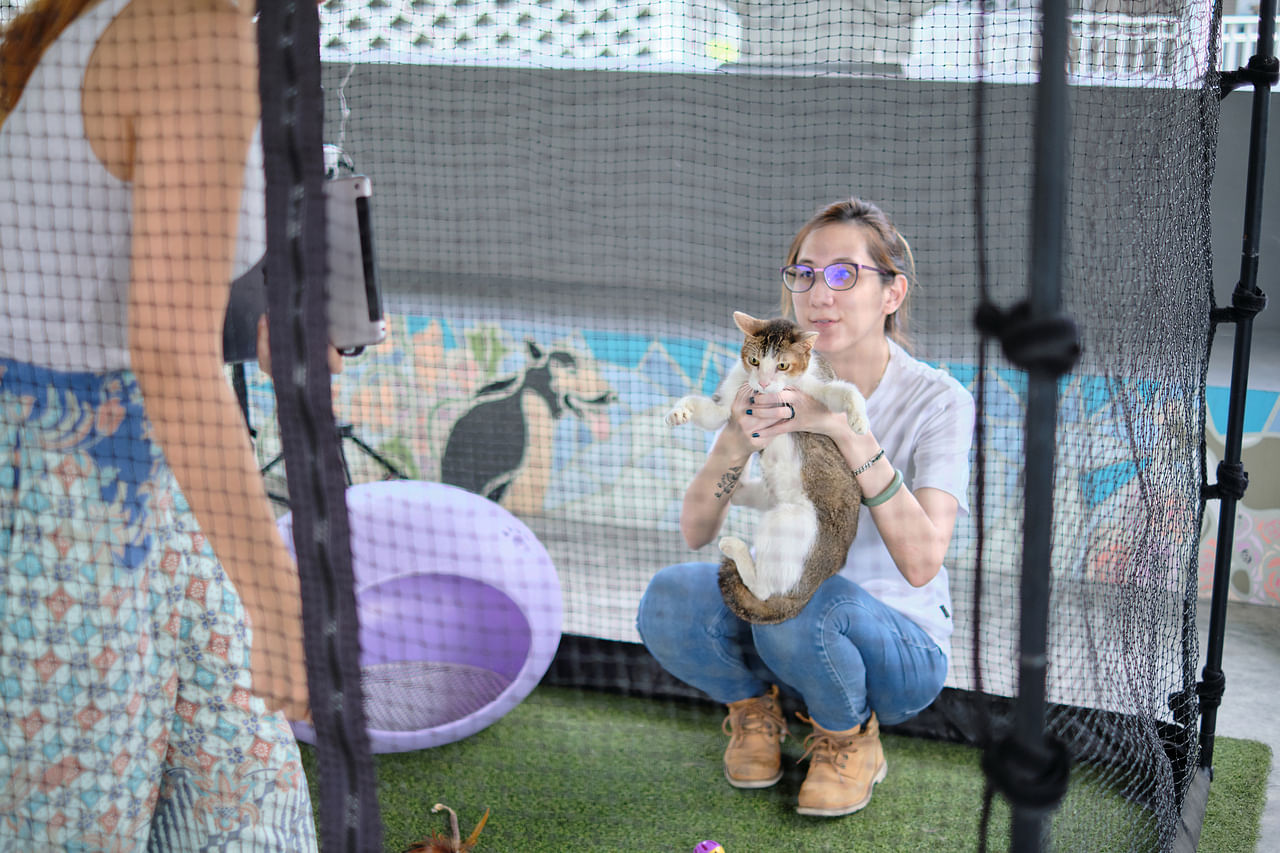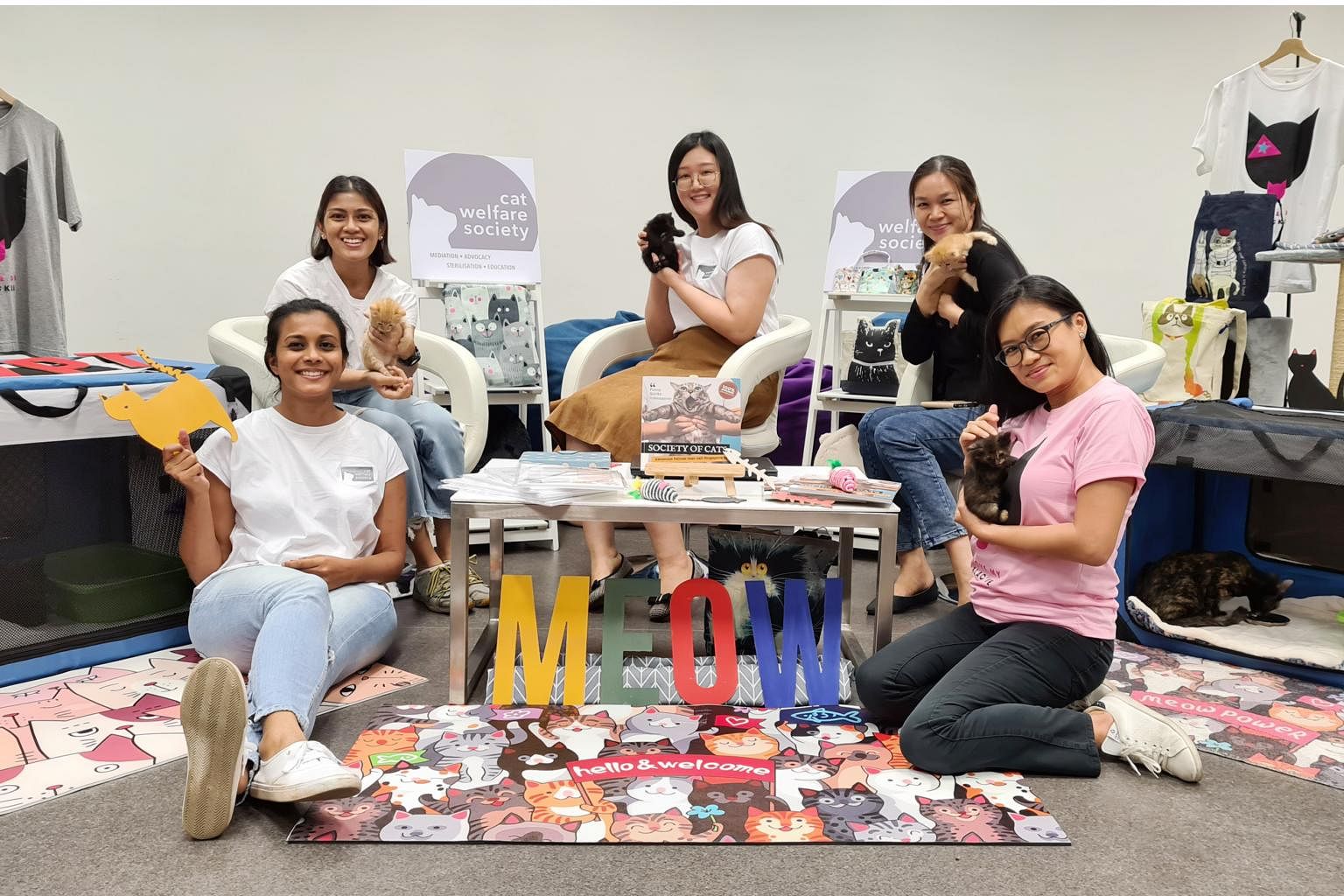-
This is the last of the Portraits of Purpose series in collaboration with DBS. Look out for our next interview series on social entrepreneurs making a difference by Wong Kim Hoh on Sept 13.
Covid-19 heroes: Animals find fur-ever homes with online adoption drives
Because the human toll of Covid-19 is so staggering, few have noticed that animals and the environment have been hard-hit by the pandemic too. The Sunday Times talks to those who are keeping watch on the earth and the welfare of its furry creatures, critters and other wild things

Last year, Ms Melodee Tan, 29, founder of non-profit advocacy group Hope for Animals (HFA), wanted to live stream adoption events to reach a wider audience.
Her fiance and fellow executive committee member Dominic Neo, 29, who previously worked in the events industry and is between jobs, came up with the idea after watching live-stream gaming.
But lacking the expertise, they put the idea on the back burner, until Covid-19 coaxed it out of storage.
In recent months, the pandemic has forced animal welfare activists to get wildly creative.
Unable to hold large-scale events such as fund-raising gala dinners and physical adoption drives, these groups have gone online, relying on live streaming, Instagram stories and online talk shows to feature dogs, cats and rabbits which need new homes.
In April, just before circuit breaker measures kicked in, Ms Tan roped in about 35 volunteers from the arts and media communities to launch an online adoption drive called Project Adopt Live, which showcases animals living in shelters or at foster homes.
Her volunteer-run group, HFA, does public outreach for about 10 shelters, helping them to raise funds and awareness.
After Covid-19 flared up, she had to cancel 12 adoption drives-cum-fund-raising events planned this year. The carnival-like events, usually held at parks and malls, used to feature vendors selling pet-related products as well as workshops, talks and games.
These have since moved online.
Although virtual adoption drives do not have the same reach as physical events, Ms Tan observes they attract more serious adopters, compared with gawkers and families looking for a day out at a pet carnival.
Fewer distractions and the security of a computer screen also mean potential adopters are more willing to ask questions about training and caring for the animal.
Another upside of virtual adoption drives is they help even the playing field for older - and less desirable - animals.
Typically, puppies and kittens are "hot stock" and get snapped up quickly. Cat Welfare Society (CWS) president Thenuga Vijakumar notes that it usually takes adult cats aged over a year much longer to find a home.
But online, shelters get to profile older animals such as nine-year-old James, an affectionate cat which has lived in the Society for the Prevention of Cruelty to Animals shelter for the past two years.
Adoption drive live-stream hosts, such as married actors Jo Tan and Edward Choy, who are dog owners, use the platform to educate viewers on the benefits of adopting older animals, such as how they are often toilet-trained and easier to integrate into a new household.
By interacting with the dogs on camera, hosts and shelter staff also debunk stereotypes that these older dogs are aggressive or "damaged", says Ms Tan.
During these episodes, celebrity guests such as MTV VJ Hanli Hoefer pop in to share her pet stories. Others speak on topics such as how to cat-proof a home and how dogs and newborn babies can co-exist.
"When you take in a dog that a lot of other people have been quick to dismiss, you're changing an animal's life. To see it open up and become the loving animal it innately is, that's the true reward," says Hoefer, who has two adopted dogs.
HFA has since aired about 15 live-stream episodes so far, with each featuring five to eight animals. About half of these have successfully found new homes.

And although Ms Tan does not have pre-pandemic adoption figures from the individual shelters, she believes overall adoption rates during and after the circuit breaker have gone up.
She attributes this trend to people staying home more during the circuit breaker and beyond, which has given them a new-found appreciation of simple joys, such as spending time with loved ones and perhaps welcoming a new furkid into the household.
"When times are hard, it forces you to reflect on your goals and desires. Some people have become used to being at home and realised they are ready for a pet as they don't need to go out as often," she says.
Ms Thenuga, 34, says adoptions for CWS have also increased. Only an average of 15 cats from its network of fosterers found new homes each month before Covid-19, compared with more than 20 a month of late.
The former lawyer believes this is partly due to the success of its Adoption Saturdays campaign since April, where it posts photos and videos of cats on Instagram.
Since last month, it has also taken part in online adoption drives such as e-Pets' Day Out, organised by the National Parks Board.
But although adoptions have gone up, there are ever more cats looking for new homes.

This is because the society, which runs a sterilisation programme to manage Singapore's cat population, had to halt these efforts for six weeks during the circuit breaker, leading to a spike in the number of stray cats. Some felines also reside in worker dormitories, which are still off-limits to the team.
As cats need only about 60 days to reproduce, the work of sterilisation, mediation, education and advocacy never stops. So, beyond the pandemic, Ms Thenuga says CWS will continue to hold online adoption drives, using them to complement in-person adoption events when it is safe to do so.
"When you are talking to a fosterer and interact with the cat, you get a sense of the cat's personality in person. It is a much richer experience than a video call or photos. But given the constraints, going online at least helps us increase the visibility of cats looking for new homes," says Ms Thenuga.
She is confident that if cat lovers in Singapore can rise to the occasion even amid a pandemic, the charity will be able to weather storms ahead.
"It has been humbling to see the community band together and people's priorities emerge," she says. "Even in distressed times, people see a need for animal welfare."
- For more information, go to www.facebook.com/HopeForAnimalsSG and catwelfare.org
Join ST's Telegram channel and get the latest breaking news delivered to you.
A version of this article appeared in the print edition of The Sunday Times on August 23, 2020, with the headline Animals find fur-ever homes with online adoption drives. Subscribe


